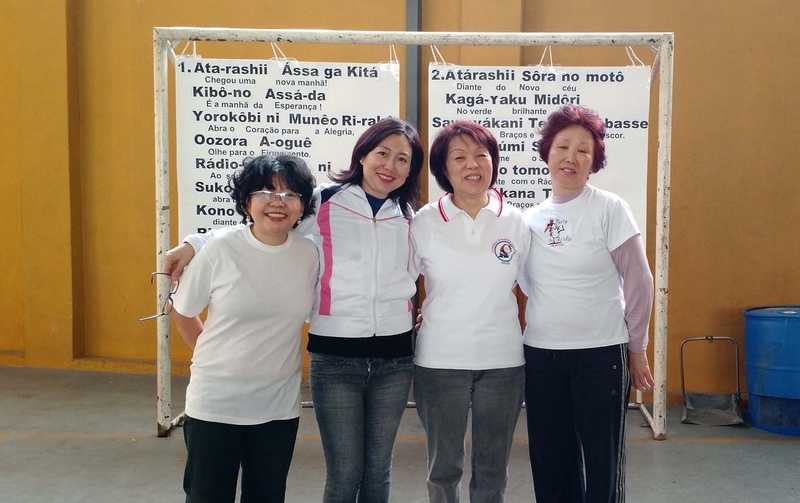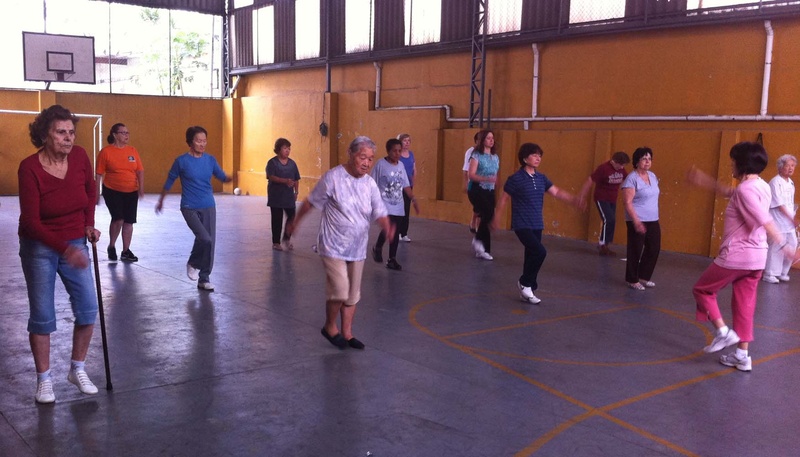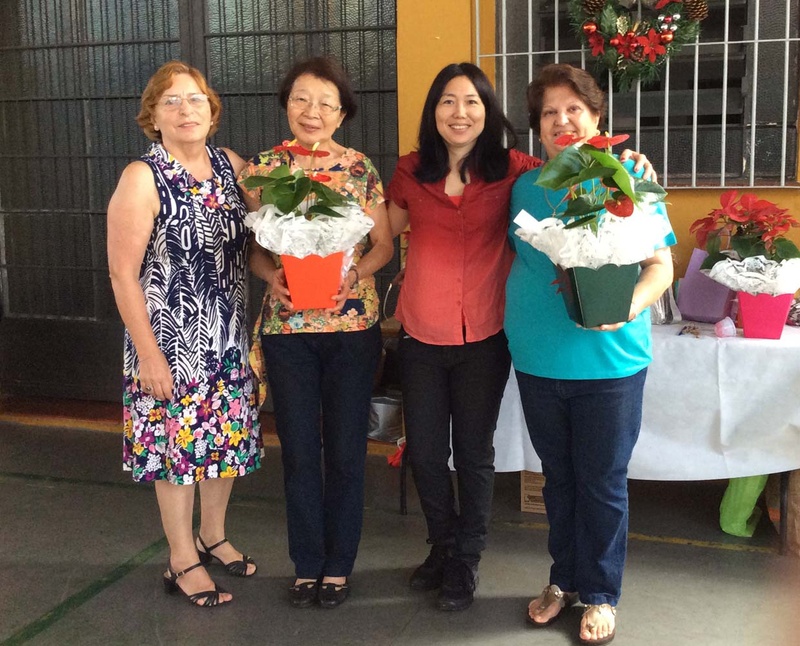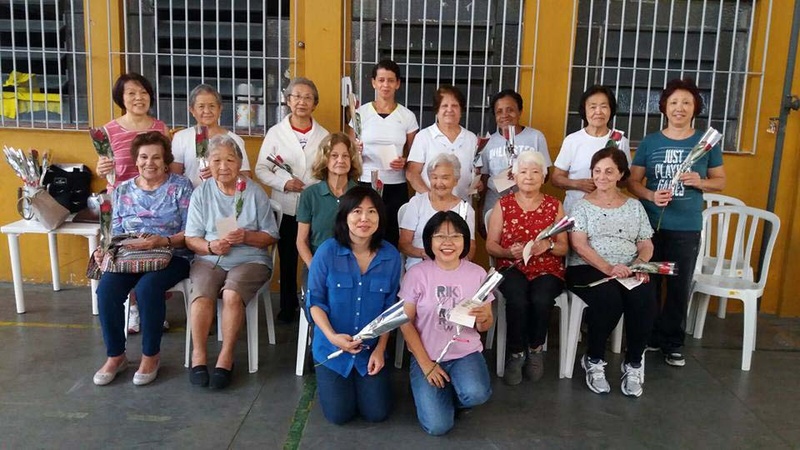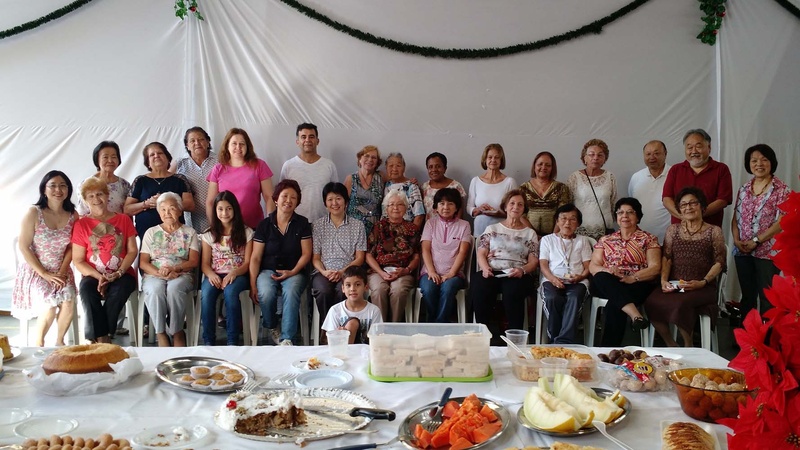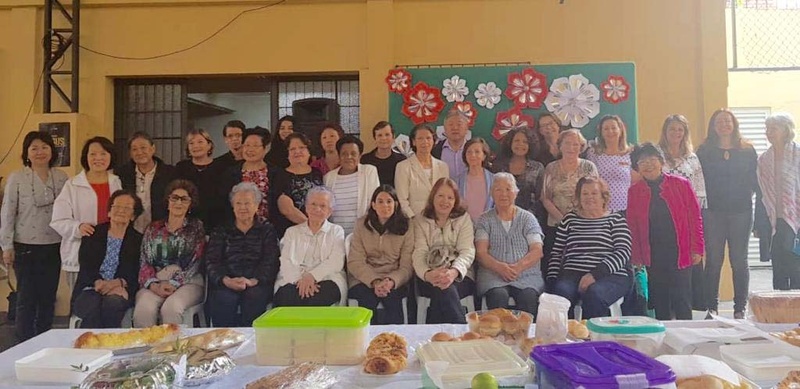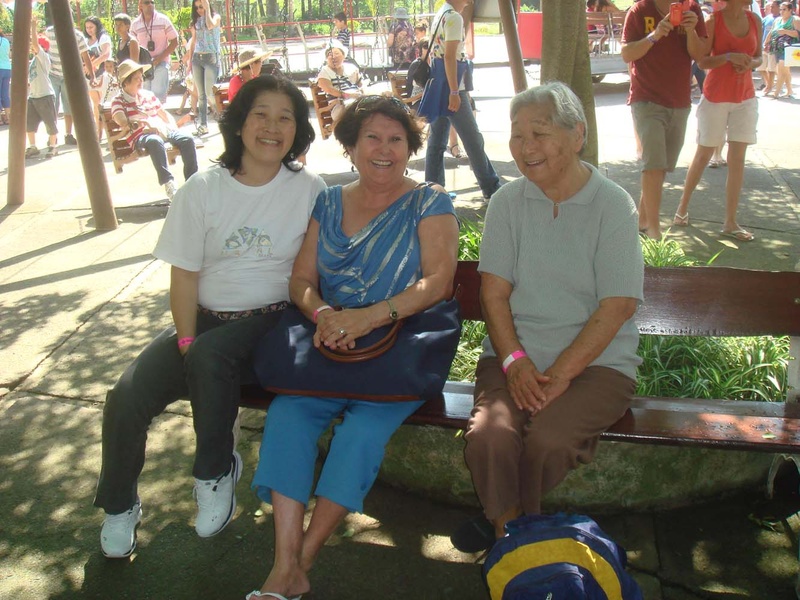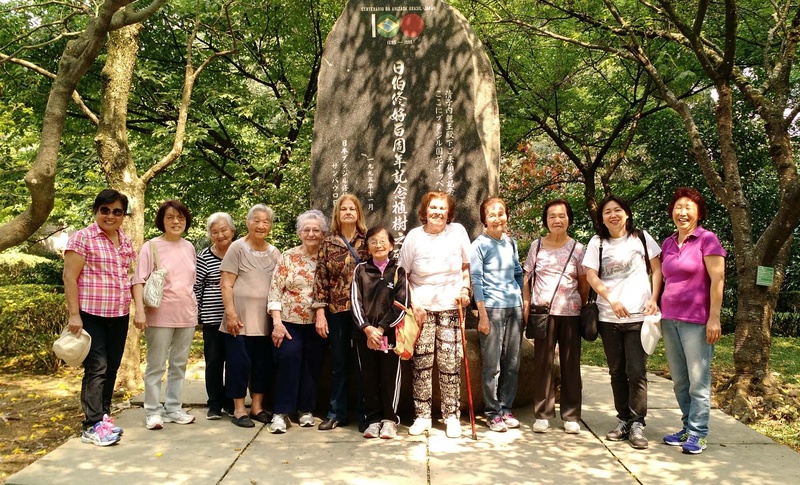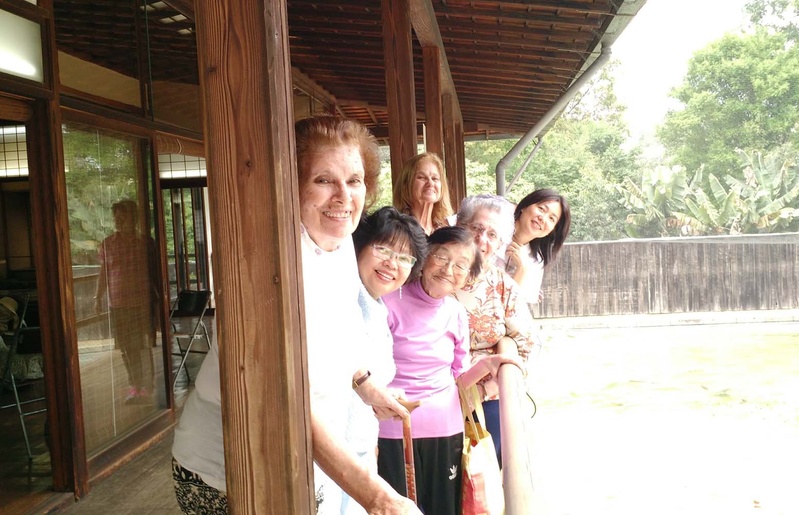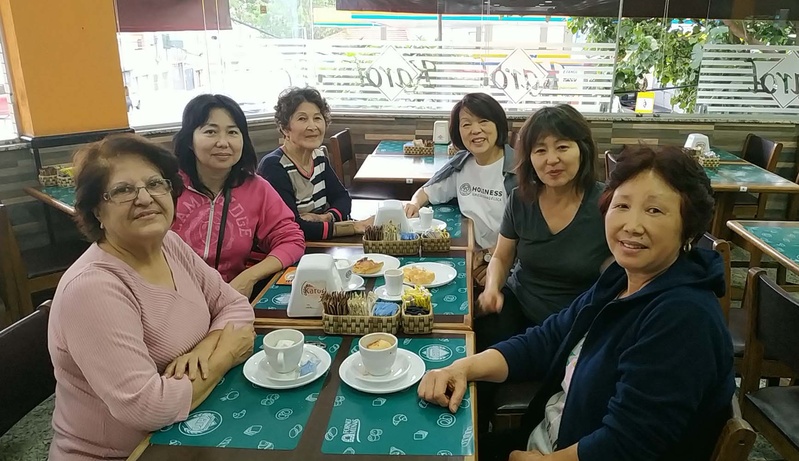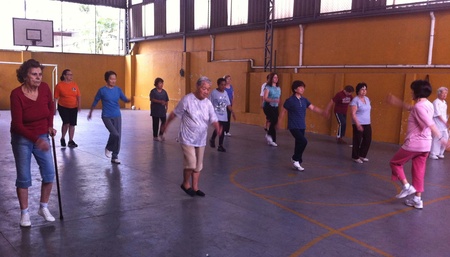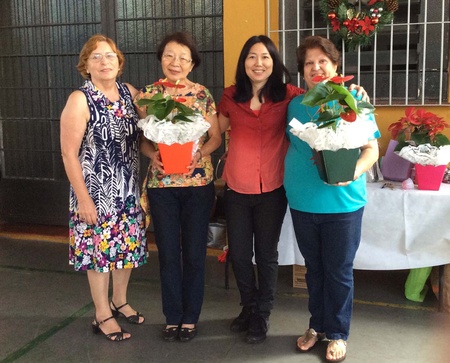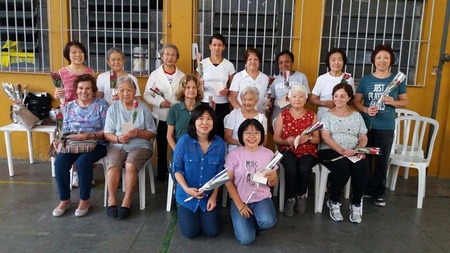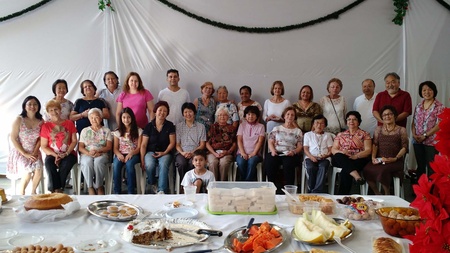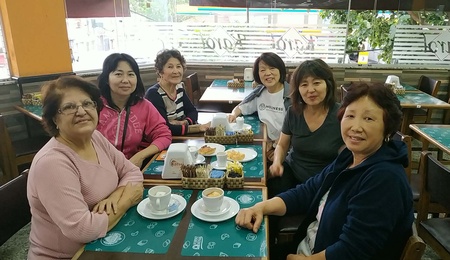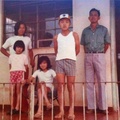Every morning, rain or shine, they're there for the Radio Taiso practice.
The site is a sports court located in the Chácara Inglesa neighborhood, in the capital city of São Paulo. A small staff takes turns opening the entrance gate and setting up the place with a table and stereo.
As a large number of Nikkei live in the neighborhood, it's hardly surprising that at least 30 percent of the regulars are of Japanese descent.
Little by little, they start to arrive, all excited, ready for the assemblage and the usual greetings, hugs (at a time when there wasn't even a hint of the coronavirus), and all the inevitable questions: “Is your back any better?”, “Are you still coughing?”, “Are you feeling better now?”, “Have you already gotten your flu shot?”, and so on. The favorite topics in gatherings of those over 50, 60, 70, 80.
Our activities always begin with a prayer, asking God to be present among us and in everything we'll be doing throughout the day.
All in a row, our students are ready to perform the exercises, each according to her own limitations. We start with a walking drill and then move on to more complex exercises.
Aerobic movements, motor coordination, everyone paying attention to the instructor's demonstrations. One of the most difficult exercises is a type of stretching, in which one leg is crossed in front of the other while you lower the trunk forward. Not everyone can do it because it requires balance; so we don't recommend giving it a try if the student doesn't feel confident.
At each class, I always think of how admirable these women are, for they have the motivation to wake up early in the morning and leave the house to go exercise despite the hardships of aging. You may ask yourself: “But where are the men?” Good question! In the beginning there were some, but they were only a few and over time they dropped out – perhaps because they were in the minority and were unable to follow the lively conversation of their fellow female students (haha!).
Talking about these activities automatically makes me think of several of the regulars and their peculiarities:
Dona Leonice, sprightly as ever, would often arrive at 6:20 or 6:30 a.m., before we had anyone there to open the gate, and, ringing the bell, she would wake up Sr. Luiz, the janitor.
Dona Maria Augusta and Dona Tioko, despite needing a cane to get around, insisted on being present; both are strong-willed and refuse to bend in the face of the difficulties of their advanced age. Before starting her exercises, Dona Augusta would leave her cane hanging on the protective grid of a nearby window.
Hoyne, better known as Hyone, is a woman with a beautiful smile who has never forgotten to salute us on Teachers' Day. This year, even without being able to join us because of the quarantine, she sent me a message of congratulations on that date. At the year-end celebrations, she, along with Márcia, Tioko, and the other girls, always gave beautiful potted plants to the team in charge.
Dona Hélvia, a little old lady with beautiful grey hair, very cultured and pleasant, makes some very funny remarks during our chats. Her son is the one who brings her in.
Márcia Schmidt, who led the group for a long time with Judith Fujita (from 2006 to 2013) before the current team took over, is an energetic woman, but with a good heart, happy to have recently become a grandmother.
Another example is Dona Míriam, whose real name is Mitiko Nakatani; she's the wife of Professor Paulo Takeshi Nakatani, who started this group in 1994. She used to be a sickly person who took a lot of medications until one day she saw a doctor who told her to get rid of all of them and go exercise instead. She accepted the challenge and started to jog, even winning many medals in her category, and tossed out all her medications, as she no longer needed them! When I met her, she was already stricken with Alzheimer's disease, but she still attended our workout classes – with a smile on her face and showing immense joy in life.
It was impossible not to become attached to Dona Tomiko Okamoto, better known as Dona Madalena, who is almost 90 years old. She was always the first to arrive and was only missing when it rained because she was afraid of slipping on the wet sidewalk. She enjoyed knitting and always brought in some piece she had finished working on so we could see it, and I had the privilege to acquire one of them.
Sometimes, I'd meet her on the way to the Radio Taiso exercises and I'd “lend” her my arm, and we'd slowly walk along while we chatted.
In class, she would remain attentive at her usual spot, ready for another workout session.
Her steady attendance was a lesson in perseverance, earning her a humble tribute at our social event in 2019.
Classes are held Monday to Friday, starting at 7 a.m. and lasting about 30 minutes; each morning, we feel refreshed for the day ahead.
More than just physical therapy, the Radio Taiso workouts provide therapy for the heart, through the interaction with people who haven't lost their kindness and courtesy despite the vicissitudes of life. It's certainly a lesson for the younger generations.
In addition to the daily workouts, there are special days like the International Women's Day, when we distribute gifts to the “girls”; besides, we get to sing “Happy Birthday” and give effusive congratulations to birthday celebrants.
Another event that we organize is our social breakfast at the end of each semester.
The team in charge of the workouts also organizes outings every six months. We've already enjoyed unforgettable visits to the Botanical Gardens, the São Paulo Aquarium, the Zoo, the Japanese Pavilion in Ibirapuera Park, in addition to the most recent one at the Wind Vane Museum.
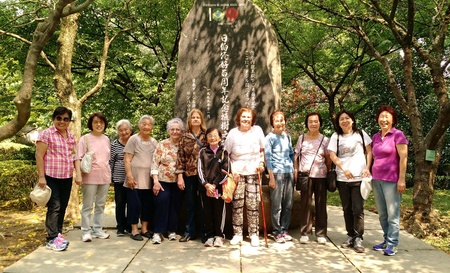
For the time being, all those activities have been suspended due to the new coronavirus and the social isolation that we have to comply with. But I have run into some of the regulars in our neighborhood, while others have called or gotten in touch via WhatsApp. And it's a fact that they all regret their lack of exercise, while also missing the group's healthy and joyful camaraderie.
All we can do is wait patiently for the return of activities, and in the meantime we go on reminiscing about the happy moments we've experienced so far.
* * * * *
Our Editorial Committee selected this article as one of his favorite More Than a Game: Nikkei Sports stories in. Here is the comment.
Comment by Aldo Watao Shiguti
Edna Hiromi Ogihara Cardoso regales us with a delicious essay about the practice of Radio Taiso workouts, demonstrating in subtle fashion and clear prose the benefits of this activity, introduced in 1978 on the occasion of the celebrations of the 70th Anniversary of Japanese Immigration in Brazil, and which over the years has attracted countless enthusiasts, including those of non-Japanese ancestry. The author manages to “transport” the reader to the workout site—in this case, a sports court—while making the story’s characters feel close to us, as if we’d known them for some time; like, for instance, in the exchanges among the regulars and the peculiarities of some of them.
In an objective manner, the author conveys information about the benefits of the Radio Taiso exercises, particularly the resulting social interactions, which have been temporarily rattled by the new coronavirus pandemic. That lack, one should add, is somewhat mitigated by conversations over the phone or via Whatsapp. Anyway, as the author makes clear, happy moments to be cherished.
© 2020 Edna Hiromi Ogihara Cardoso


